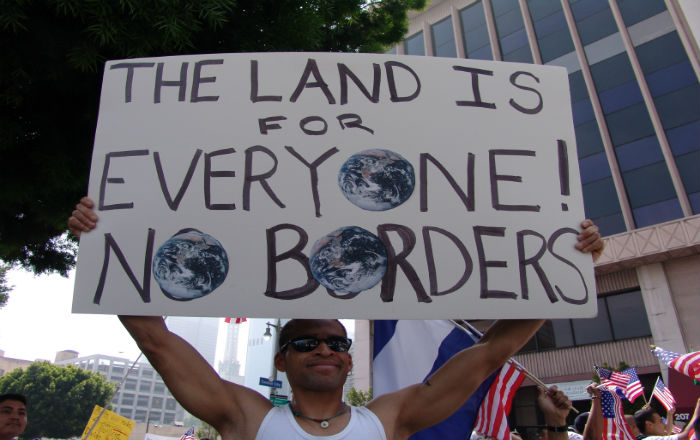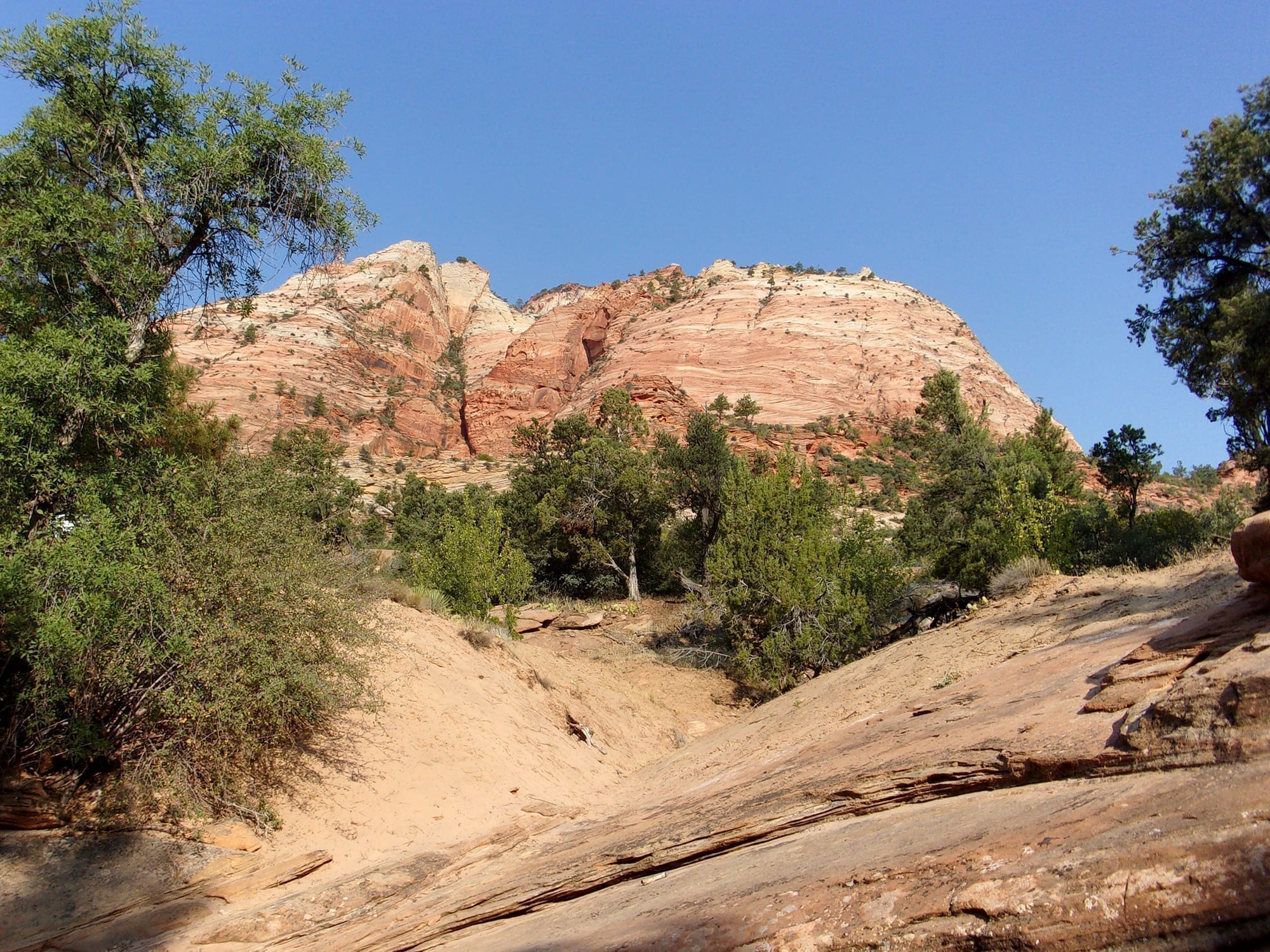 Written by Marcos Camago
Written by Marcos CamagoI have an obsession, probably held by many others, where I just have to read bumper stickers. I’ll speed up, tailgate, and even veer from my planned course in order to read another driver’s prefabricated and publicized opinion. I look at it this way: if someone takes the time to select, purchase, and install a two-line belief system, then that opinion must be pretty important to them. What can I say? I like to know what others care about.
Just the other day I was riding passenger in my friend’s car when we pulled up to a well-kept late model sedan (Japanese built). Suddenly, and much to my delight, I was confronted by their seventeen word worldview.
“If you can read this, thank a teacher…”
“How nice,” I thought, but then it went on…
“If you’re reading this in English, thank a soldier”
I suffered a slight shutter. After a minute of just thinking, I came to the conclusion that the owner of the sticker probably meant to imply that if it weren’t for American military might, then we might have been conquered by the Germans, the Japanese, or (perhaps) the Russians. I understand the pride felt by many Americans when they think about the brave soldiers who left their homes to fight fascism in Europe and the Pacific. But it concerns me to see how so few remember that the last foreign ground invasion that America repelled occurred during the War of 1812, against the English speaking British Army. It’s almost comical that the only italicized terms in the bumper sticker were the words “English” and “soldier,” the very people who last invaded the United States.
Yet, many Americans act like their Anglo-tongue gives them some superiority, as though freedom and democracy can only be understood in English—a type of cultural bigotry in my opinion. Perhaps one must only take a short trip to any of the Native American reservations and ask one of the residents if they would like to thank a soldier for their ability speak English—but in all seriousness don’t actually do that, your question might not be taken well.
This week saw President Obama move forward with the long anticipated executive action on immigration. And so the debate has once again flared up on what to do with America’s 12 million so-called “illegal aliens,” and who has the authority to enact federal immigration policy. But I’m not interested in arguing over constitutional powers or the legality of executive orders; that discussion is better hashed out by squabbling lawyers and politicians in a far away capitol that’s more drunk on power than it is committed to democracy.
Instead, I believe the more important question is, Why are we so culturally divided, here and now, in our local communities? Utah has always been a state different from others, but often divided amongst itself. The immigration question is no exception. After Arizona passed S.B. 1070 (an unprecedented state immigration law) in 2010, Utah legislators seriously considered enacting a similarly strict policy. The debate got so hot it was featured in articles from news organizations across the nation. But when the dust settled, leaders in both the private and public sector opted for a much more even-handed approach and signed the Utah Compact.
The Compact is a non-binding declaration meant to “guide Utah’s immigration discussion.” The Compact was signed by leaders of the law enforcement, business, and religious communities. Although the LDS Church did not sign the Compact, it did issue a public statement in support of the declaration. Official LDS endorsement is based on the grounds that “the Savior taught that the meaning of ‘neighbor’ includes all of God’s children, in all places, at all times.” I’m not surprised that the LDS church rejects the notion of creating outsiders from among our immigrant neighbors. Mormons have a long history of being outsiders themselves, and the LDS church prides itself in being a worldwide organization, with close to 1.5 million members in Mexico. In fact, Mexico has long been connected to the LDS Church and the southern US border plays an interesting part in Mormon history.
In 1844, the small but growing Latter-Day Saint faith found itself once again homeless, run out of Illinois (the fourth consecutive state to force the Mormons out), and unable to convince the federal government to lend assistance. With a murdered prophet and a ransacked city, the LDS movement was divided and desperate for leadership. Forced across the boundary that demarcated civilization from wilderness, the largest of the Mormon factions turned to Brigham Young as their next prophet and president. After two years in limbo, Young decided to escape the oppression Mormons had faced in the United States and headed for Mexico. In an ironic turn of events, the vast Mexican desert that was the Saints’ destination switched hands and became part of the US: the outcome of a sneaky, yet decisive territorial conquest known as the Mexican-American War.
Finding himself and his followers once again under American political control, Young did what he could to segregate Mormon territories from outside influences. Yet Mormon communities welcomed newcomers, from both inside and outside the faith, as long as these people practiced industry and possessed strong community values. A society built on hard work and united communities arose. And so Utahns became a unique people, one more interested in reliance on neighbors than in the distant rumblings of a corrupt capitol.
So we return to the question: Why are Utahns so divided on whether we will welcome industrious people of all cultures into our society? To me the divisions of culture and citizenship should play no part in how we build our communities and whom we allow to participate in that building. But the question will never be solved until we can unite our voices and tell our leaders to end their own political divisions long enough to unite everyone who wants to be a part of the American experience.
Marcos grew up in the rural heartland of Oregon. In 2003 he moved to Utah to find his place in the world and fell in love with the deserts of America’s arid country. An avid student of history and politics, he has a great interest in Western and Native American history and culture. He spends his free time exploring the wilderness of the Southwest.



